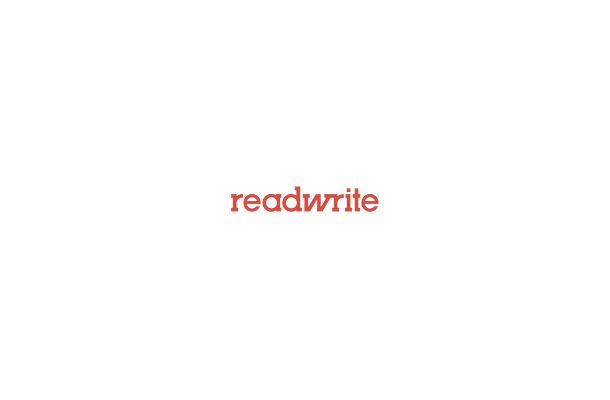GitHub is so often touted as a tool for coding projects that it’s easy to forget just how useful a resource it is for everything else.
At the heart of GitHub are two collaborative functions—forking and branching—that aren’t exclusive to coding. Forking means to create a clone of somebody else’s work for remixing. Branching is a way for each person in a group to create a temporary clone for tandem editing, and then push those updates back to the group project again.
While many of GitHub’s capabilities require knowledge of Git, its underlying and complicated version control language, forking and branching can both be done with nothing more than a GitHub account and a few clicks. GitHub has the additional benefit of a liberal use policy, so you are in complete control of anything you upload there. (See Section F of the GitHub Terms of Service.)
Forking and branching both have invaluable uses for synergetic projects, and it’s not just coders who have taken advantage of them. Here are seven ways people are harnessing GitHub to work together on projects of all stripes.
Travel Logging
Dylan Egan is in the process of traveling the world. The problem is, he’s only one person and there’s no way he could know the best places to stay, eat and visit in each country. So for the past year, he’s been crowdsourcing his journey on GitHub.
You can check out where Egan is planning to go, and edit the file to suggest accommodations, food or activities. Afterward, he’ll record what he did and post photos, like this log of his visit to Austin, Texas. It’s a nerdy, but effective, way to travel.
Musical Composition
Written the 1940’s, the Gregorian Chant known as Nova Organi Harmonia has been freely available since 2008. But ever since Adam Wood, a church music director, put it on GitHub earlier this year, it can now be forked and improved.
Wood told Wired he saw potential for church congregations to put the chant into different arrangements depending on the musical instruments they had available (The original music is written with an organ in mind). While GitHub does not have a built-in way to edit music, Wood said it’s compatible with other editors, and already other churches are remixing the chants into different keys.
Remixing Recipes
Everyone likes their cooking to be a little different. Some people like it spicier, saltier or sweeter than others. So any good cook is going to make at least a few changes to a recipe he or she finds online.
Enter Fork the Cookbook, a recipe site based on GitHub that lets you do just that. Fork, or clone, copies of the recipe with your own changes to make them better, and then let other people see the adjustments you’ve made. Your recipe will link back to the original you’ve improved upon. Now you’re cooking with technology.
Open Source Font Editing
Here’s a way for creatives to get involved. The League of Movable Type is an open-source type community that wants collaborators around the world to help it create the most aesthetically pleasing typefaces possible—for free.
Obviously, you can’t edit type on GitHub. But you can fork one of the font files to copy it into your own editor. Harnessing the power of the crowd, the League makes fancy, free typefaces that help make websites look prettier.
Data Visualization For Journalists
Should journalists learn to code? That’s a complicated debate within the media sphere, but there’s a shortcut for journalists who already know basic CSS and HTML. Sheetsee.js is a JavaScript library designed to help journalists easily make maps, tables, charts and other visualizations appear on websites without having to be professional developers.
An invention of developer and designer Jessica Lord, it’s a resource that’s supposed to make coding more accessible to small newsrooms who have the data for visualizations, but not the dev teams. Sheetsee.js is the most technical of all the items on this list, but Lord’s tutorials and examples make it more accessible than your average coding project.
Writing And Blogging
Not everyone knows that GitHub has a secondary service, GitHub Pages, for hosting blogs and other sites. One high0profile user was President Obama, whose dev team hosted his campaign blog there. You don’t need to know any code to use GitHub Pages, though unsurprisingly there’s a way to edit your entire blog in raw code.
Even if you’re into more intense writing projects, like a book, you can use GitHub’s text editing functions to collaborate with one or more co-writers and editors. One writer, JJ Merelo, is publishing his science fiction novel, Hoborg, entirely on GitHub, where you can read it or even suggest edits. GitHub even offers a Zen Writing Mode, so you can really get in the zone.
Legal Documents
In an age where many startups are based on software development, it makes sense that GitHub is a startup company hub. Now, lawyers are giving this potential client group easy access to the legal documents they might need.
The first pioneer was Twitter lawyer Benjamin Lee, who posted the company’s patent agreement to GitHub where it could be analyzed, edited and cloned. And earlier this year, Fenwick & West, one of Silicon Valley’s top legal firms, posted a 30-page set of legal documents for startups to use when lining up venture funding. It only makes sense that the legal work startups use is as open source as the software they create.
GitHub CEO Tom Preston-Werner has said that the service puts developers first. But with this many uses, he won’t be surprised when the rest of us start using it to our own advantage. Today’s GitHub user doesn’t actually need to be acquainted with Git. Want to learn Git anyway? Read our tutorial.




